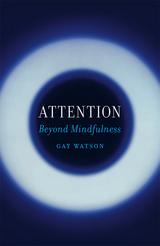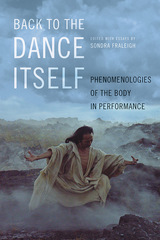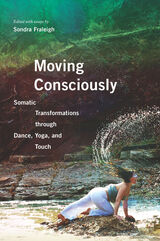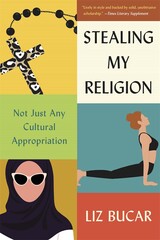
Whenever the subject of communities and communal living comes uo, a variety of doubts and suspicions is usually aroused. The possible brainwashing of impressionable young people is frequently mentioned. Although the idea itself is centuries old, it has yet to be accepted as an approved method of living, even in this so-called New Age.
Of the many hundreds that have been started, very few have proven successful. The fact that Ananda has done so remarkably well against terrifying odds, and that at every time of crisis help always seems to come in some extraordinary way, invites attention. During his lifetime, which ended in 1952, Yogananda called for the founding of spiritual communities dedicated to world brotherhood and to "simple living and high thinking." Ananda is the first response to this directive. Its remarkable history, and its present expanding horizons, are the subject of this work.

If there is one thing we are short on these days, it’s attention. Attention is central to everything we do and think, yet it is mostly an intangible force, an invisible thing that connects us as subjects with the world around us. We pay attention to this or that, let our attention wander—we even stand at attention from time to time—yet rarely do we attend to attention itself. In this book, Gay Watson does just that, musing on attention as one of our most human impulses.
As Watson shows, the way we think about attention is usually through its instrumentality, by what can be achieved if we give something enough of it—say, a crisply written report, a newly built bookcase, or even a satisfied child who has yearned for engagement. Yet in losing ourselves to the objects of our fixation, we often neglect the process of attention itself. Exploring everything from attention’s effects on our neurons to attention deficit disorder, from the mindfulness movement to the relationship between attention and creativity, Watson examines attention in action through many disciplines and ways of life. Along the way, she offers interviews with an astonishing cast of creative people—from composers to poets to artists to psychologists—including John Luther Adams, Stephen Batchelor, Sue Blackmore, Guy Claxton, Edmund de Waal, Rick Hanson, Jane Hirshfield, Wayne Macgregor, Iain McGilchrist, Garry Fabian Miller, Alice and Peter Oswald, Ruth Ozeki, and James Turrell.
A valuable and timely account of something central to our lives yet all too often neglected, this book will appeal to anyone who has felt their attention under threat in the clamors of modern life.

Contributors: Karen Barbour, Christine Bellerose, Robert Bingham, Kara Bond, Hillel Braude, Sondra Fraleigh, Kimerer LaMothe, Joanna McNamara, Vida Midgelow, Ami Shulman, and Amanda Williamson.

Renowned poet Richard Tillinghast’s wanderlust and restless spirit are nearly as well known as his verses. This book of essays captures that penchant to wander, yet Journeys into the Mind of the World is not merely a compilation of travel stories—it is a book of places. It explores these chosen locations—Ireland, England, India, the Middle East, Tennessee, Hawaii—in a deeper way than would be typical of travel literature, attempting to enter not just the world, but “the mind of the world”—the roots and history of places, their political and cultural history, spiritual, artistic, architectural, and ethnic dimensions.
Behind each essay is the presence, curiosity, and intelligence of the author himself, who uses his experience of the places he visits as a way of bringing the reader into the equation. Tillinghast illuminates his travels with a brilliant eye, a friendly soul, and eclectic knowledge of a variety of disparate areas—Civil War history, Venetian architecture, Asian cultures, Irish music, and the ways of out-of-the-way people. This attention to history and cultural embeddedness lends unique perspectives to each essay.
At the heart of his journeys are his deep roots in the South, tracing back to his hometown in Tennessee. The book explores not only Tillinghast’s childhood home in Memphis, but even the time before his birth when his mother lived in Paris. Readers will feel a sense of being everywhere at once, in a strange simultaneity, a time and place beyond any map or guidebook.


“Lively in style and backed by solid, unobtrusive scholarship…In her call for responsibility in borrowing, Liz Bucar singles out for criticism forms of exploitation close to her own identity as privileged and religiously unaffiliated.” —Jonathan Benthall, Times Literary Supplement
“So finely written, so intelligent and fair, and laced with such surprising discoveries that it deserves a reader’s full attention…As the act of walking a religious pilgrimage does invite greater self-awareness…Stealing My Religion is now an essential part of that worthy endeavor.” —Kurt Caswell, Los Angeles Review of Books
“With interpretive subtlety and ethical vision, Liz Bucar explores the moral risk of intercultural theft. Stealing My Religion is a powerful intervention by a leading scholar of religion into the illiberal results of everyday religious exploitation. Highly recommended." —Kathryn Lofton, author of Consuming Religion
Liz Bucar unpacks the ethical dilemmas of a messy form of cultural appropriation: the borrowing of religious doctrines, rituals, and dress for political, economic, and therapeutic reasons. Does borrowing from another’s religion harm believers? Who can consent to such borrowings? Bucar sees religion as an especially vexing arena for appropriation debates because faiths overlap and imitate each other and because diversity within religious groups scrambles our sense of who is an insider and who is not. Indeed, if we are to understand why some appropriations are insulting and others benign, we have to ask difficult philosophical questions about what religions really are.
Stealing My Religion guides us through three revealing case studies—the hijab as a feminist signal of Muslim allyship, a study abroad “pilgrimage” on the Camino de Santiago, and the commodification of yoga in the West. We see why the Vatican can’t grant Rihanna permission to dress up as the pope, yet it’s still okay to roll out our yoga mats. Reflecting on her own missteps, Bucar comes to a surprising conclusion: the way to avoid religious appropriation isn’t to borrow less but to borrow more—to become deeply invested in learning the roots and diverse meanings of our enthusiasms.
READERS
Browse our collection.
PUBLISHERS
See BiblioVault's publisher services.
STUDENT SERVICES
Files for college accessibility offices.
UChicago Accessibility Resources
home | accessibility | search | about | contact us
BiblioVault ® 2001 - 2024
The University of Chicago Press









